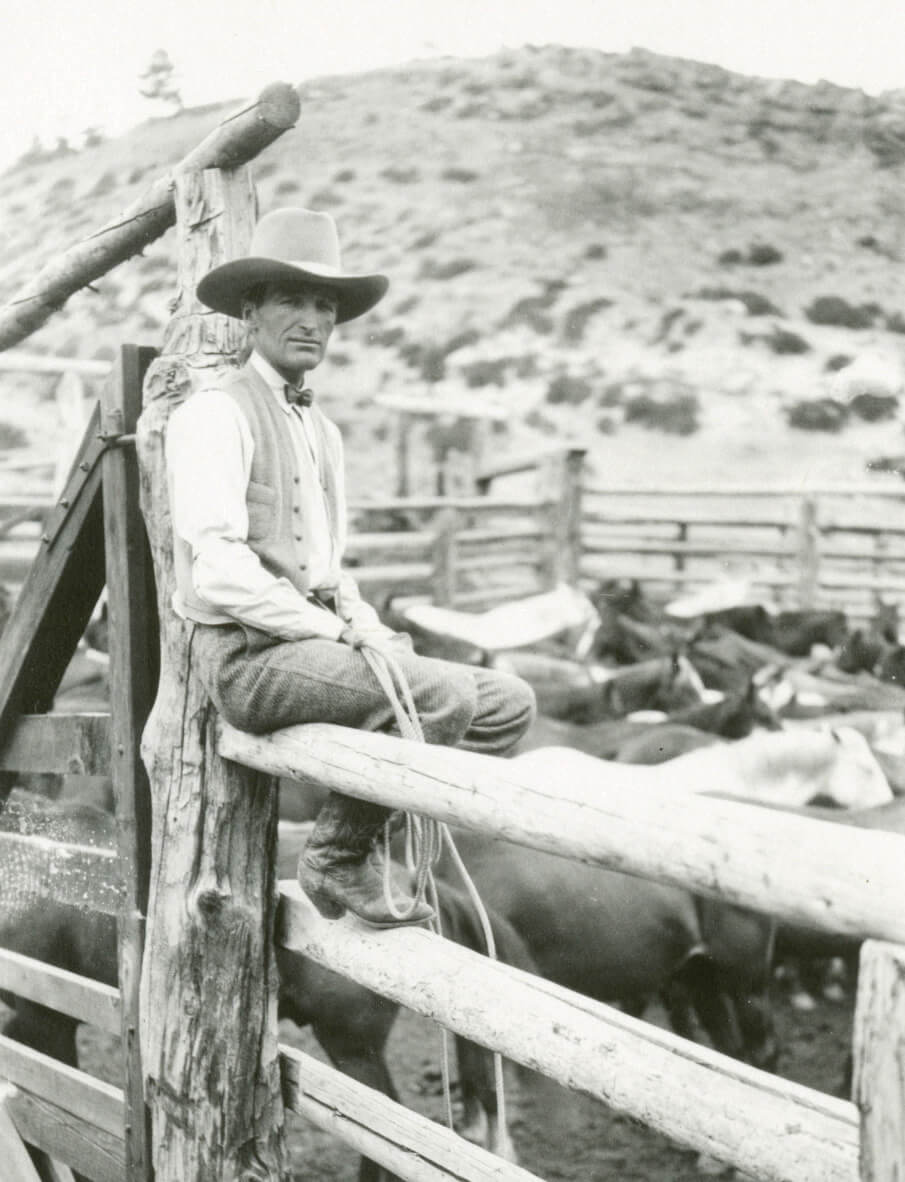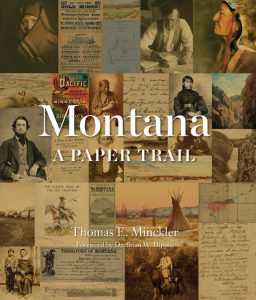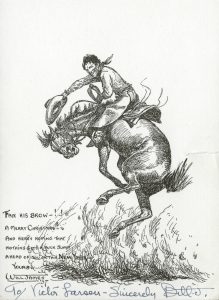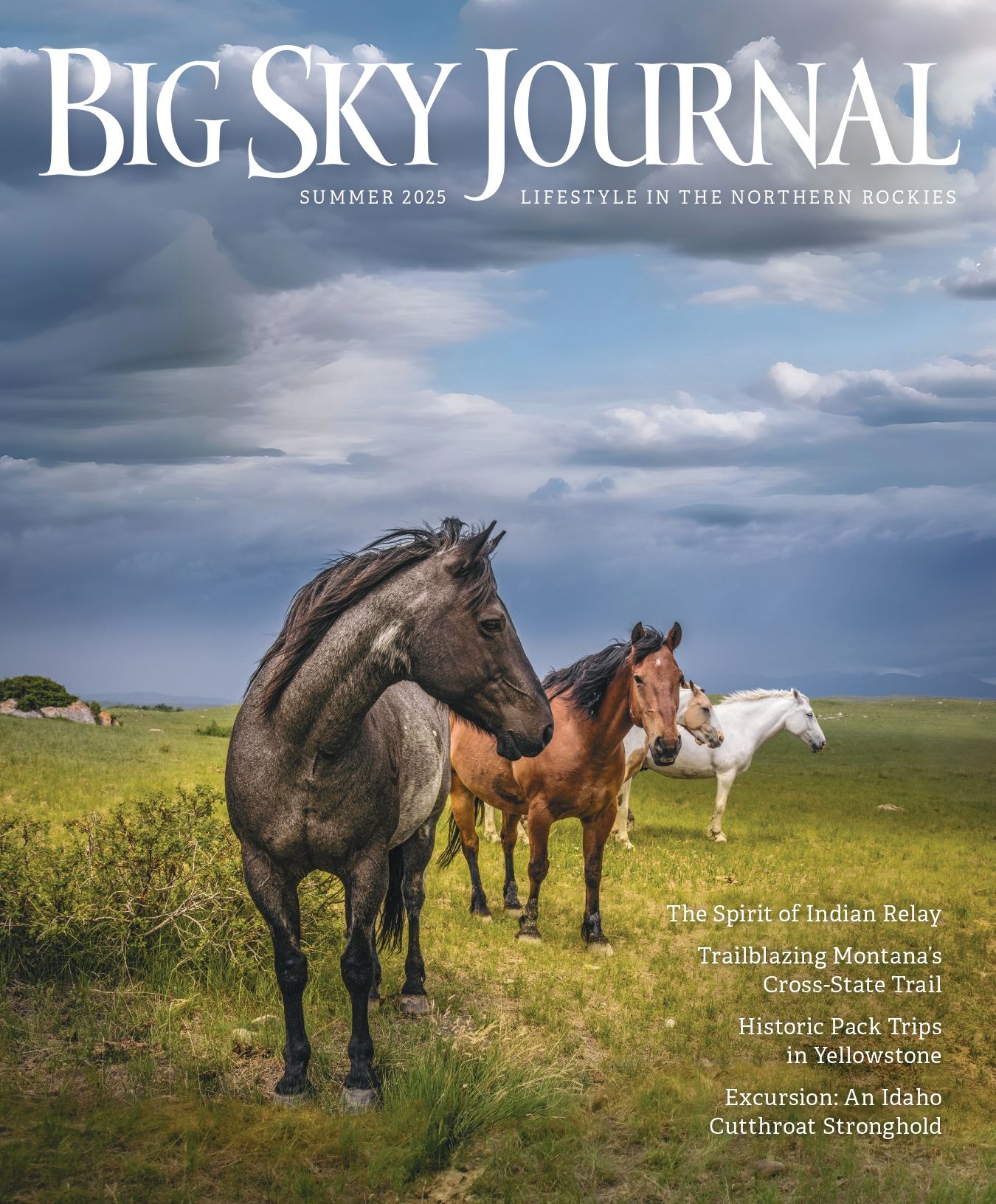
01 Feb Round Up: Excerpt from Montana: A Paper Trail
Thomas E. Minckler has dealt in rare books, manuscripts, photographs, ephemera, and art for much of his life. His 2023 book, Montana: A Paper Trail, is a historical narrative that guides readers through the 19th century of the Northern Plains, Rocky Mountains, and early Montana. This excerpt, featuring the life of sketch artist and author Will James, is published with permission from the author and Montana Historical Society Press.
There was a cowboy artist to whom Charlie M. Russell served as an inspiration, and even though they only met toward the end of Charlie’s life, the admiration was heartfelt. Will James [1892 – 1942] was an anomaly whose ascent to fame and riches was meteoric. From working as a drifting cowboy, he went on to serve time in a Nevada prison for stealing cattle, and then to international fame in a few years’ time — it was nothing short of a miracle.

A Boston newspaperman described James as a “cowhand, orphan, homeless wanderer, cattle thief, and jail bird: A human being with a warmth of human love for life and nature and animals.” All was true — except he was no orphan. Sure, James wrote in his autobiography, Lone Cowboy, published in 1930, that he was born in the Judith Basin in a covered wagon and orphaned by the age of 4. He was raised by Boby, a French-Canadian trapper, who in turn suffered an untimely death. The story was pure fiction. James lived a lie, and throughout his emotionally tortured life, with his successful stories and art published by Scribner’s, he clung to this covert impersonation of a pitiable frontier orphan. Embracing a secret identity posed a giant mental paradox, contributing to his downfall and an early death from alcohol. Anthony Amaral, in his 1967 biography, discovered that James was a French Canadian, born Joseph Ernest Nepthali Dufault in a small village near Montreal, Canada. In James’ case, truth was not as sexy as fiction.
The truth about Will James does not diminish his brilliance as an artist and the ingenuity of his writing. At the time, he inspired more children to learn about the Western style of living than any other man, dead or alive. Beyond the rhetoric, his body of work reveals a deep passion for horses and the American West. During the 1920s and 1930s, James was the talk of the town from New York to Los Angeles. The London Times and other European papers wrote about him. His name appeared in society pages, and he attended parties hosted by celebrities like Harry Carey and Tom Mix. …

COURTESY OF MONTANA HISTORICAL SOCIETY PRESS
… James possessed a knowledge and understanding of horses, both on paper and in words, and he retained a familiarity with the working cowboy that, in the words of his biographer, A.P. Hayes, “provided him with insight and understanding of cowboy life unmatched by his peers, past or present. Even today, more than 40 years after his death, it is doubtful that any artist of merit would come forward to claim parity with James’ credentials as a cowboy.” Furthermore, his high standard for accuracy in drawing horses was corroborated by other artists such as Joe De Yong, Bob Scriver, and Harry Jackson.
Jackson went even further, paying homage to James’ drawing ability with its “energy packed line.” He wrote, “I have loved Remington and Russell all of my life. Their work always inspires me. But one good black and white Will James drawing contains more timeless life-force than all their work, including painting and bronzes, rolled into one. Let me emphasize how much I love and am inspired by everything that Remington and Russell ever did. I’m not knocking them, I’m merely paying the drawing of James its just due.” He further wrote that James was not a painter and lacked a sense of color, but he could draw action in the horse. Jackson left the most profound thoughts on James with this strong statement:
I was an abstract expressionist painter 40 years ago. Back in New York, Pollack and de Kooning personally taught me what “action” or “gestural” painting is. Will James is one of the greatest action or gestural draftsman of all time. Tintoretto and Rubens and Daumier would admire his work. His line is akin to the best of the ancient Chinese and Japanese drawings, and those in the cave of Lascaux. He is one with Gericault, and better than my lifelong hero Delacroix. … To sum it up, he was one of the greatest draftsman that ever lived.




No Comments